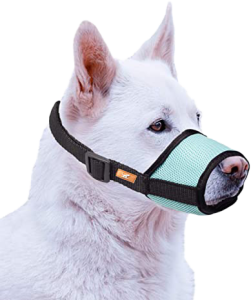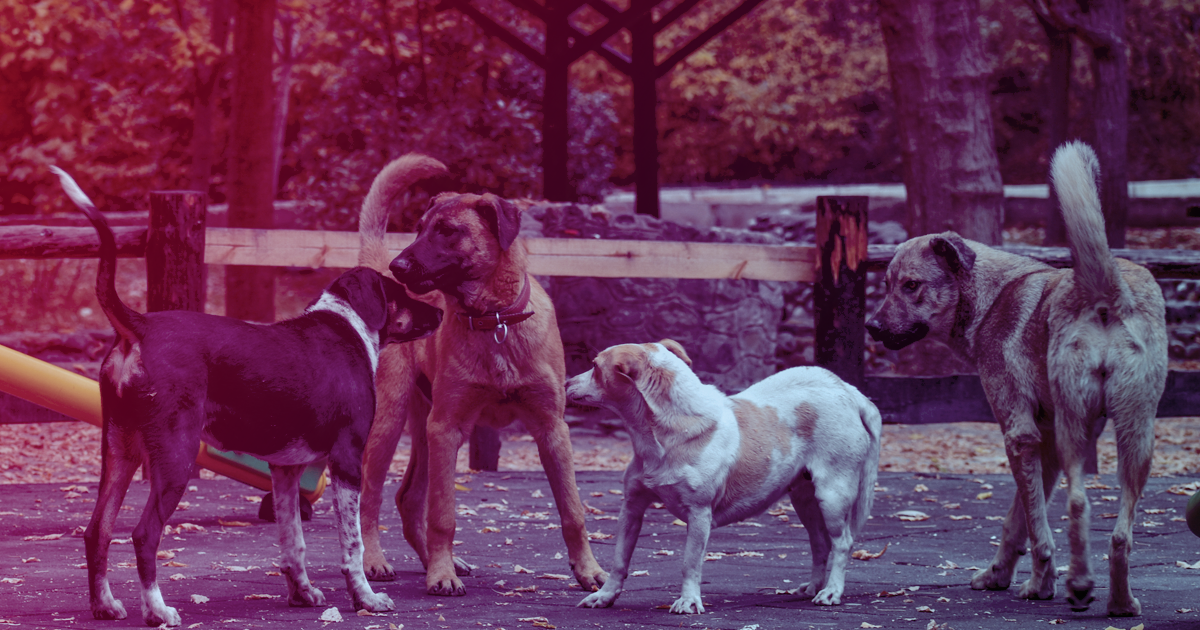Many people adore dogs from afar, and many people love their furry companions at home. Those who care for dogs know that even with careful training and planning, accidents or bites could occur.
The goal is to be prepared in the event that your dog bites another person, gets in a fight with another dog, or causes an accidental injury to happen to someone.
Dog parks are viewed as safe and friendly places to take dogs to play and frolic. They are places where dogs can enjoy being off-leash, socialize with other dogs, and get much-needed exercise. Sometimes a dog park can be a risky adventure because over-excited dogs or nonchalant dog owners could lead to instances of injury. If a dog bites another dog, bites another person, or knocks down a person – who is at fault?
While there are ways to try to prevent any accidents at a dog park, or anywhere else dogs are allowed, sometimes preparation is not enough.
Dog parks or other places that allow patrons to bring their dogs are most often designated as “use at your own risk” locations. Strict rules of conduct may be posted and areas will be marked where dogs may visit. Thus, if you or your canine companion is injured by another dog – or your dog causes injury to another – the park or the venue may not be held responsible.
Anyone who has been bitten or knocked down will need to obtain the other person’s contact information and any available insurance information in order to file a claim for injuries. The burden of proof will depend on proving that the dog owner was at fault due to not paying attention to their dog, or if their dog was being unreasonably dangerous. Documenting the occurrence with as many details as possible will be necessary, as well as trying to get any witness statements or video footage of the event.
The injured party should also contact an attorney to help them through the legal process and insurance company negotiations. If one’s dog was injured, a suit for the veterinarian bills, suffering, and distress may be able to be filed.
While the majority of kind dog owners view their pets as family members, many states treat dogs as simply personal property. In such cases, damages are then limited to the difference in the dog’s “market value” before and after the injury – or damages may only cover the cost of the dog’s veterinary treatment. In either case, it might need to be proven that the other owner knew – or should have known – that their animal was dangerous. Similarly, if you know that your own dog has a propensity to lunge at or bite people or other dogs, it is your responsibility to keep him or her leashed and under your command or you risk liability as well.
Every dog owner must take responsibility for training their dog and keeping them under reasonable control at all times. You can prevent your dog from biting someone, especially if you understand why they might bite. Training and socialization are two solutions. Dogs may bite people when they feel threatened in some way, and it’s a natural instinct that remains present in domesticated dogs, no matter how nice they are.
 Nervous, untrained, unsocialized, or injured dogs can become reactive and deemed aggressive in certain situations. It’s up to the dog’s caretaker to know and understand the behavior status and take preventative measures. If the dog has shown a tendency to snap, growl, or bite, then a muzzle may be a good idea for social situations. While people may not understand or not like seeing a dog with a muzzle on, it does help to protect the owners and other dogs – and many new style options mean that the muzzle can be soft and comfortable for the wearer. It is also ideal to exercise the dog with play prior to taking them to a place where there are other people and dogs, as it helps calm the dog’s energy down.
Nervous, untrained, unsocialized, or injured dogs can become reactive and deemed aggressive in certain situations. It’s up to the dog’s caretaker to know and understand the behavior status and take preventative measures. If the dog has shown a tendency to snap, growl, or bite, then a muzzle may be a good idea for social situations. While people may not understand or not like seeing a dog with a muzzle on, it does help to protect the owners and other dogs – and many new style options mean that the muzzle can be soft and comfortable for the wearer. It is also ideal to exercise the dog with play prior to taking them to a place where there are other people and dogs, as it helps calm the dog’s energy down.
Carry an extra leash along when attending a dog park as it can become handy in the event your dog gets in a tussle with another dog in case you need to clip it to the other dog and pull it away when their owner is not close by. Carrying an extra ball can prove to be handy also, as many dog park disagreements arise over dogs simply going after the same ball. Dogs may butt heads for a number of reasons, including over treats and asserting their pack leadership when they enter an area of other dogs.
It is important for everyone, adults and children, who interact with dogs to understand what may provoke aggressive behavior. The unintentional startling of a dog could provoke a dog to snap. Suddenly awakening a dog, or if a child quickly approaches a dog from behind, can also be startling. Accidental pain caused to a dog, such as stepping on a paw or bumping into a sore hip, could also provoke a dog to nip. Being fearful around a dog can cause them to feel nervous and become reactionary. Just the act of running away from a dog – even during a playful time – could trigger a dog bite. Dogs who may have been previously hit by humans, abused, or abandoned may have sensitivity to loud noises or situations where there is a lot of activity. Dogs might bite as a defense mechanism or when being protective of the owner or other family members. Different dogs have different triggers, and each has various responses to them. One dog may be afraid of men, or beards, or children. Another dog may fear lawn tools or bicycles, and hide behind their owner upon encountering one. Dog owners need to consistently remain mindful of their dog’s limitations and not engage them in situations that would cause undue stress to them.
Parents need to also teach their children to not approach or touch unfamiliar dogs without consent of the owner. Never put your face close to a dog’s face – and do not suddenly go up to a dog that is eating, sleeping, or caring for their young. It is also very important to teach others not to move or engage with an injured dog unless they are trained in how to do so. Responsible dog ownership and education of the public can help to keep everyone safe.
If your dog bites someone, or you are bitten by a dog, there are helpful steps to keep in mind.
- Aim to stay calm.
- See that the dog(s) are removed to a safe distance and under control.
- Wounds should be gently washed with clean water first.
- Medical care should be sought after, and Veterinary care involved if a dog was hurt.
- Notify local authorities of the incident and comply with their orders.
- Exchange contact information with those involved, as well as any witnesses.
- Have the Veterinarian(s) gather or document the dog’s medical records.
A dog bite victim may choose to press charges or file a civil suit against the owner – similarly if the victim is the owner’s dog that became injured.
Dog bite laws can vary greatly depending on the local jurisdiction. Dogs that are considered to be dangerous may risk the call to be euthanized, especially if the injury was serious or fatal. It is important to gather all data on what occurred to get all of the details prior to drastic measures being taken. It may need to be proven that the dog was provoked or protecting family or property – or that the victim did nothing to cause the incident. The party found to be at fault may be legally ordered to cover the victim’s medical expenses and/or other damages.
The best treatment is prevention, so the ideal answer would be to avoid circumstances that may encourage a dog to bite. Educating the public about dogs and their behaviors is paramount because we all are likely to encounter a dog almost anywhere.
If you or your dog has suffered injuries due to another dog at a local dog park or other location, the first step is to file a legal insurance claim as soon as possible – such as with that of the at-fault dog owner, their homeowner policy, business policy, or property insurance policy. An attorney who is knowledgeable as an injury lawyer can investigate the circumstances behind the incident and file a claim with the appropriate insurance company.
Filing a claim that arises from a dog attack usually begins when the victim’s lawyer prepares a settlement demand letter to the insurer. This demand letter will detail how the incident occurred, the injuries suffered, and make a monetary demand for settlement within the limits of the applicable insurance policy. Sometimes, victims of dog bites and other attacks can suffer very serious injuries and victims may incur significant medical bills and expenses. The amounts and types of damages that a dog attack victim might be eligible to recover will depend upon the nature and extent of injuries sustained.
Relevant documentation related to the injury claim will be included such as copies of any witness statements, incident reports, any police reports, the victim’s medical bills, and other records that are related to the injuries. If photographs and/or other supporting documentation depict the injuries, plaintiffs can include them as well. If the case does not settle at this stage, the attorney can file a lawsuit to pursue a favorable result through litigation.
The most commonly disputed issue in dog bite cases is damages or how much the dog attack victim should recover. The parties involved may elect to pursue alternative dispute resolution or mediation.
If you or your dog suffered injuries because of someone else’s actions or the actions of their dog, The Floyd Law Firm will advocate on your behalf. It can be a challenging time for all involved. We can explore your legal options with you.



